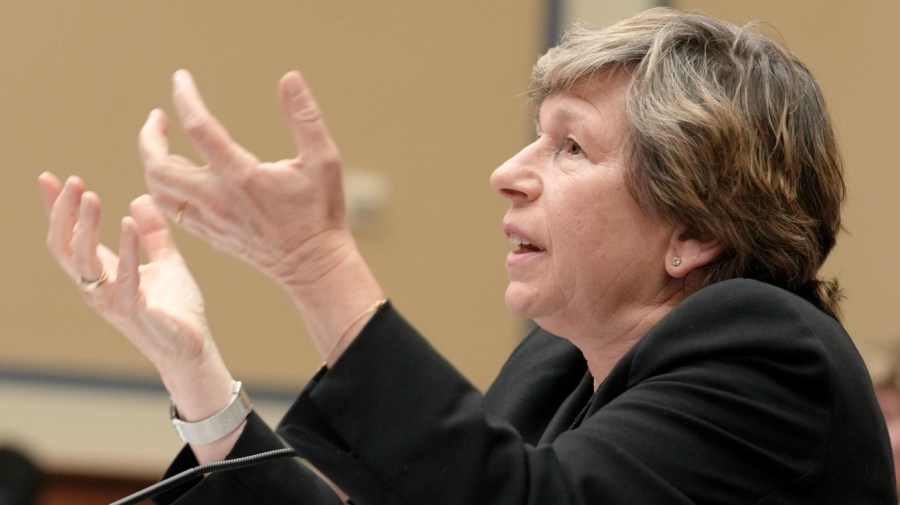Republican lawmakers on the Subcommittee on the Coronavirus Pandemic pressed American Federation of Teachers (AFT) President Randi Weingarten during a hearing Wednesday on the exact role the union had in influencing school reopening guidance from the Centers for Disease and Control Prevention (CDC).
Weingarten was called before the panel after a public records request showed the AFT had the opportunity to give proposals and suggestions to the CDC’s “Operational Strategy for K-12 Through Phased Mitigation” guidance during the pandemic.
“We’re investigating the decision-making process behind school closures and the effects it had so that we can do better in the future,” Chairman Brad Wenstrup (R-Ohio) said in his opening statement. “Inherently, part of that investigation is evaluating if the Centers for Disease Control and Prevention followed science as they knew it or learned it or merely accepted outside guidance regardless of available data during its guidance drafting and publication process.”
The AFT pressed for language in the guidance about giving special accommodations to teachers at high risk for COVID-19 and language saying the guidance might have to change if a new variant affected transmission rates. The accommodation for teachers was the only one fully accepted by the CDC.
Republicans also pointed to an email from the AFT to the CDC that showed the union wanting a trigger for when schools should close if transmissions got too bad.
“Ultimately, our goal was to have clear guidance so that teachers in classrooms, bus drivers, the school nurses knew, but most of us did not know what this meant. And we needed clear guidance from the scientists that we could follow,” Weingarten said.
Wenstrup said he agreed with the proposal the AFT made regarding teacher accommodation, but that the question is how the process was conducted and whether the AFT had inappropriate access to editing the document.
Other Republicans were more direct on the matter.
“Is it common for outside groups to send draft language to the CDC?” Rep. James Comer (R-Ky.) asked Weingarten, later saying, “It’s unusual for a political union to have such a role in scientific guidance process.”
Weingarten pushed back on Republican claims that the AFT made line-by-line edits to the guidance and emphasized that the union wanted children back in school as soon as possible.
“We know that kids learn best in person, so opening schools safely, even as a pandemic surged, guided the AFT’s every action, and I’m grateful to set the record straight,” Weingarten said in her opening testimony.
Democrats throughout the hearing blasted it as a political stunt that ignored the real issues children faced during the pandemic.
“We are holding this hearing today along the backdrop of the Republican extreme budget plan that makes reckless 22 percent cuts on critical education and health care programs that serve Americans’ children and families,” ranking member Raul Ruiz (D-Calif.) said, referring to negotiations on the debt ceiling.
Ultimately, Republicans set to make the AFT out to be a political organization that had unprecedented access to edit CDC guidance.
“But the concern I have is when the White House comes and says that there was no political input that what we constantly see is an organization that, you’re not an education organization, while though you have education, you’re not a medical organization, you’re a political organization and that you are weighing in on the guidance,” Rep. Michael Cloud (R-Texas) said.
